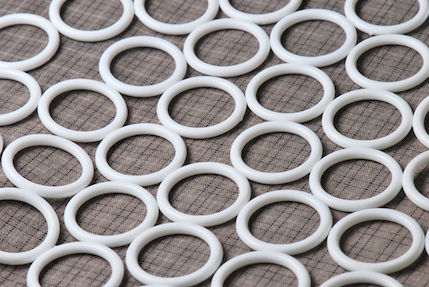Polytetrafluoroethylene (Ptfe)
Teflon (PTFE) is a high-performance, semi-crystalline thermoplastic that can be used in a variety of applications. It is one of the most chemically-resistant plastics available and has one of the widest temperature ranges, -400°F (-240°C) to 500°F (260°C). It also has excellent insulation properties for thermal and electrical applications. Teflon has a very low coefficient of friction, making it naturally slick and resistant to sticking and bonding. Its mechanical properties are low compared to other high-performance plastics but can be improved by the addition of fillers such as glass fiber, carbon, graphite, molybdenum disulfide, and bronze.
Benefits
- High chemical resistance
- Low and high-temperature capability
- Resistance to weathering
- Low friction
- Electrical and thermal insulation
- Anti-stick surface
Common Applications
- Seals and gaskets
- Packing materials exposed to chemicals
- Bushings, bearings, and slide bearings
- Piston rings
- Wire, cable, and electrical insulation
PTFE | Teflon Properties Chart
| UNITS | ASTM TEST | PTFE | |
| Tensile strength | psi | D638 | 3,350 |
| Flexural Modulus | 10^5 psi | D790 | 0.5-0.9 |
| Impact Strength, Izod | ft-lbs/in of notch | D256 | 3.5 |
| Heat deflection temperature @ 264 psi | °F | D648 | 132 |
| Max Service Temp – Long Term | °F | UL94 | 500 |
| Coefficient of thermal expansion | 10^5 in/in-°F | D696 | 5.5-8.4 |
| Elongation | % | D638 | 300 |
Values may vary. Please ask your Erie Industrial Plastics representative for more specific information.

